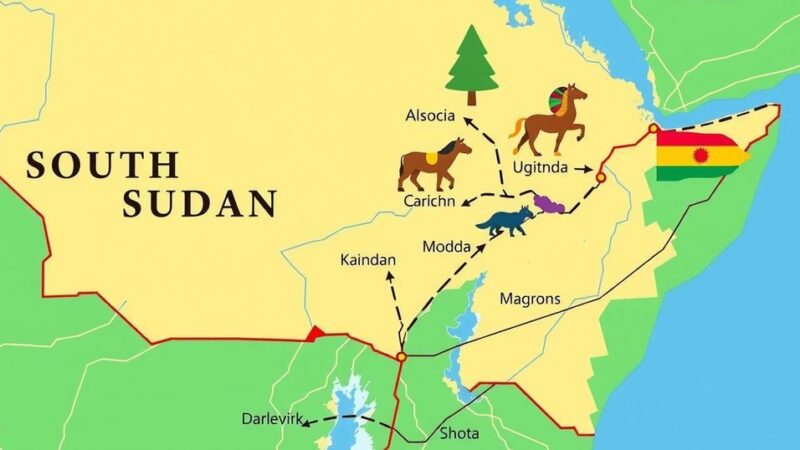The United States has initiated ongoing airstrikes against the Iran-backed Houthis in Yemen, following a deadly operation. The strikes aim to counter Houthi attacks on shipping, signifying a robust military stance under President Trump. Key officials assert that these operations will persist until the Houthis cease their provocations. The conflict raises significant humanitarian and geopolitical issues, particularly regarding Iran’s role in the region.
United States officials have confirmed that airstrikes against Iran-backed Houthis in Yemen will persist indefinitely following a recent operation that resulted in at least 31 fatalities and around 100 injuries. These strikes, targeting the Houthis for their attacks on Red Sea shipping, mark President Donald Trump’s inaugural exercise of US military force in the region since taking office in January.
Secretary of Defense Pete Hegseth stated that the campaign will cease only when the Houthis agree to stop their assaults on US assets. Hegseth, along with other senior officials, emphasized that the operation serves as a demonstration of the United States’ newfound assertiveness towards Iran and overall Middle Eastern policy.
National Security Adviser Michael Waltz remarked that the airstrikes were aimed at eliminating multiple Houthi leaders with overwhelming force, thereby signaling Iran that the United States’ patience has run thin. President Trump further articulated his stance on social media, warning the Houthis to cease their attacks immediately or face severe consequences.
The Houthis, who have dominated Yemen for over a decade, claim their aggressive actions against international shipping are in solidarity with Palestinian causes. They have also aimed missiles and drone strikes at Israel amid the ongoing Gaza conflict, prompting Israeli investigations into potential threats originating from Yemen.
In response, Iran’s Revolutionary Guards commander asserted the independence of the Houthis and cautioned against further US threats. Concurrently, Iran’s foreign ministry denounced the US strikes as violations of international law and stated that the US has no jurisdiction over Iranian foreign affairs.
As the US military plans a sustained operation in Yemen, involving significant force from the Harry S Truman aircraft carrier, Pentagon officials indicate that strikes may continue for several weeks. Analysts are now questioning whether military forces might also be directed at Iran, particularly following increasing pressures from Israel in the region.
Recent reports from Houthi leadership indicate that the airstrikes disproportionately harmed women and children, while the Houthi political office branded the attacks as war crimes. Witnesses in Sana’a described the strikes’ tremors as terrifying for civilians, illustrating the dire humanitarian consequences of this military engagement. Additionally, the recent escalation follows a period of relative calm and an announcement by the Houthis to recommence attacks on Israeli vessels.
In conclusion, the United States has committed to an indefinite military campaign against the Houthis in Yemen, marking a critical moment in its foreign policy regarding Iran and the wider Middle East. The airstrikes intend to respond to the Houthis’ maritime aggression and bolster US strategic presence in the region. As tensions escalate, both humanitarian concerns and geopolitical ramifications continue to unfold, with a significant focus now on Iran’s potential responses.
Original Source: www.theguardian.com






